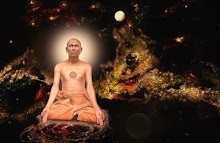You should try to maintain mindfulness of every activity and perception through the day, starting with the first perception when you awake, and ending with the last thought before you fall asleep. This is an incredibly tall goal to shoot for. Don't expect to be able to achieve this work soon. Just take it slowly and let you abilities grow over time. The most feasible way to go about the task is to divide your day up into chunks. Dedicate a certain interval to mindfulness of posture, then extend this mindfulness to other simple activities: eating, washing, dressing, and so forth. Some time during the day, you can set aside 15 minutes or so to practice the observation of specific types of mental states: pleasant, unpleasant, and neutral feelings, for instance; or the hindrances, or thoughts. The specific routine is up to you. The idea is to get practice at spotting the various items, and to preserve your state of mindfulness as fully as you can throughout the day.
Try to achieve a daily routine in which there is as little difference as possible between seated meditation and the rest of your experience. Let the one slide naturally into the other. Your body is almost never still. There is always motion to observe. At the very least, there is breathing. Your mind never stops chattering, except in the very deepest states of concentration. There is always something coming up to observe. If you seriously apply your meditation, you will never be at a loss for something worthy of your attention.
Your practice must be made to apply to your everyday living situation. That is your laboratory. It provides the trials and challenges you need to make your practice deep and genuine. It's the fire that purifies your practice of deception and error, the acid test that shows you when you are getting somewhere and when you are fooling yourself. If your meditation isn't helping you to cope with everyday conflicts and struggles, then it is shallow. If your day-to-day emotional reactions are not becoming clearer and easier to manage, then you are wasting your time. And you never know how you are doing until you actually make that test.
The practice of mindfulness is supposed to be a universal practice. You don't do it sometimes and drop it the rest of the time. You do it all the time. Meditation that is successful only when you are withdrawn in some soundproof ivory tower is still undeveloped. Insight meditation is the practice of moment-to-moment mindfulness. The meditator learns to pay bare attention to the birth, growth, and decay of all the phenomena of the mind. He turns from none of it, and he lets none of it escape. Thoughts and emotions, activities and desires, the whole show. He watches it all and he watches it continuously. It matters not whether it is lovely or horrid, beautiful or shameful. He sees the way it is and the way it changes. No aspect of experience is excluded or avoided. It is a very thoroughgoing procedure.
If you are moving through your daily activities and you find yourself in a state of boredom, then meditate on your boredom. Find out how it feels, how it works, and what it is composed of. If you are angry, meditate on the anger. Explore the mechanics of anger. Don't run from it. If you find yourself sitting in the grip of a dark depression, meditate on the depression. Investigate depression in a detached and inquiring way. Don't flee from it blindly. Explore the maze and chart its pathways. That way you will be better able to cope with the next depression that comes along.
Meditating your way through the ups and downs of daily life is the whole point of Vipassana. This kind of practice is extremely rigorous and demanding, but it engenders a state of mental flexibility that is beyond comparison. A meditator keeps his mind open every second. He is constantly investigating life, inspecting his own experience, viewing existence in a detached and inquisitive way. Thus he is constantly open to truth in any form, from any source, and at any time. This is the state of mind you need for Liberation.
It is said that one may attain enlightenment at any moment if the mind is kept in a state of meditative readiness. The tiniest, most ordinary perception can be the stimulus: a view of the moon, the cry of a bird, the sound of the wind in the trees. it's not so important what is perceived as the way in which you attend to that perception. The state of open readiness is essential. It could happen to you right now if you are ready. The tactile sensation of this book in your fingers could be the cue. the sound of these words in your head might be enough. You could attain enlightenment right now, if you are ready.
Bhagavad Gita
Sunday, June 14, 2009
Subscribe to:
Post Comments (Atom)


No comments:
Post a Comment